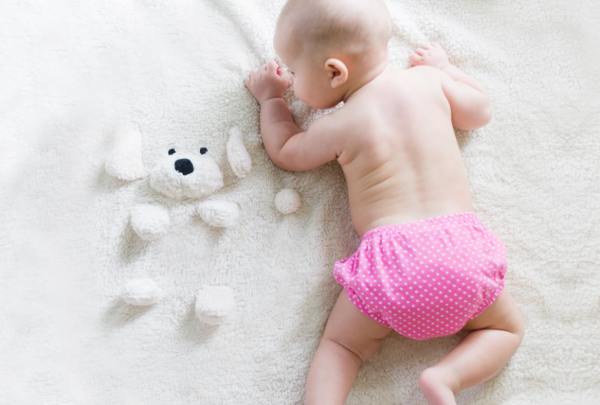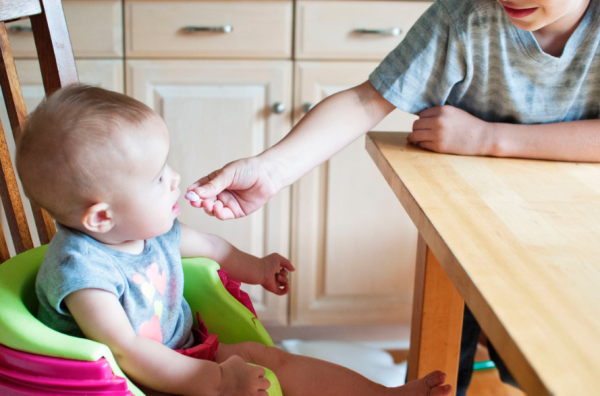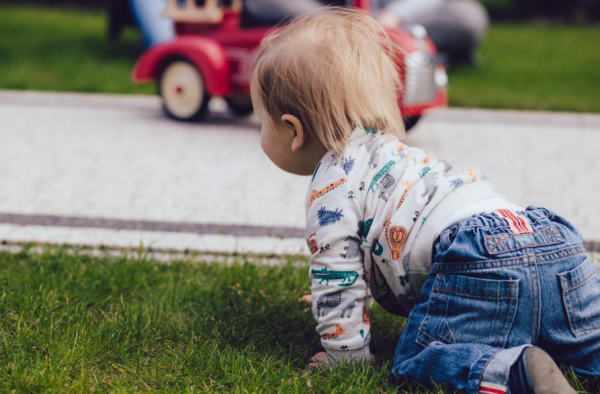
Dr Pixie has brilliant tips for the first year of your tiny tot's growth
The first year of any baby's life can be daunting for parents, you notice every tiny change as they grow seemingly bigger by the minute.
Key developmental milestones are achieved during year one, when your baby is discovering the amazing world surrounding them.
Expert GP Pixie McKenna has written several books on how babies grow in their first year of life, and is now giving parents her top tips for helping them develop.

1. Allow your baby to lead the way
According to Pixie, "encouraging your baby’s natural interest and allowing them to lead their exploration is important."
This can be massively daunting for any mum or dad, but babies learn a huge amount through sensory activities which capture the imagination.
Confidence is a key aspect of development, if your baby finds something interesting then allow them to embrace it.

2. The value of vocabulary
"The richer the language environment your baby experiences, the larger their understanding and the bigger their vocabulary," says Dr. McKenna.
Your baby can learn their first ever words by listening to you speak, their cognitive development allows them to absorb massive amounts of information from birth.
After 18 months, most babies have learnt a few simple words, and once they start chatting there's no stopping the flow.

3. Sleep patterns
Pixie maintains that;
"Babies’ sleep four or 5 times during the day for the first 3 months, with anything from ¾ of an hour to 2 hours between naps. Sleep is important for your baby, as it directly impacts their mental and physical development."
After roughly six months, your little bundle of joy may be sleeping longer during the day and waking less at night but every baby has their own unique sleeping pattern.

4. Separation shyness
Dr. Pixie believes in the benefit of introducing a goodbye routine to aid separation anxiety;
"Anxiety such as this is typical in the first year and starts between 8 and 14 months old; though of course can vary from baby to baby. A little anxiety about leaving mum or dad is normal, you are their constant and they recognise your faces."
As your baby meets more and more people, they will adapt to spending time with those they haven't met before.

5. Need for nutrition
Changes in your baby's diet will make a big difference in their lives. Dr McKenna believes that, as your baby graduates to solid foods, this is the perfect time to introduce fruit and vegetables into their lives as early as possible;
"During the first year, your baby will be starting their weaning journey; on average at around six months of age, but before this, breast milk or formula milk will have all the nutrition they need for growth," she says.
"A great way to normalise your baby eating nutritious food is allowing them to see mum and dad eating the same food, and involving them as part of family mealtimes," she adds.
Set a good example for your baby, and bring as much healthy food into your own diets as parents as possible.

6. Get messy
The first year of a baby's life is bound to bring messiness with it; from scattering musical toys around the house to playing with their food, it's inevitable.
Pixie recommends buying the perfect baby wipes to help you along the way;
"There are plenty of gentle baby wipe options out there such as WaterWipes with Soapberry, which are tough on mess but kind on babies’ delicate skin."
WaterWipes are specially designed for growing babies and are made with 99.9% water, and are ideal for gentle cleansing; make sure to visit their website for more information.

7.Unsteady first steps
Dr McKenna suggests that you can limit bumps and bruises when your little one learns how to walk by childproofing your home;
"At around 12-14 months, your baby will be taking their first steps unaided, although they might be a little bit wobbly. This is an incredible developmental milestone, but it is natural to feel slightly nervous about your baby becoming mobile," she says.
Your eyes will be on them at all times of course, but it's always better to be prepared for wobbles.

8. Every baby is completely unique
It's vitally important to know that your baby will do everything in due time, there's no rush to achieve the 'usual' milestones.
"Let your baby develop at their own pace and encourage their achievements, whether they are eager to be on the move or are an early chatterbox. Just remember that when they do things is less important than how and what they do," according to Dr Pixie.
Dr. McKenna has some great advice for all parents, no matter what stage of development their baby is at. Remember that if you are experiencing any worries about your baby's development, pay your GP a visit.
